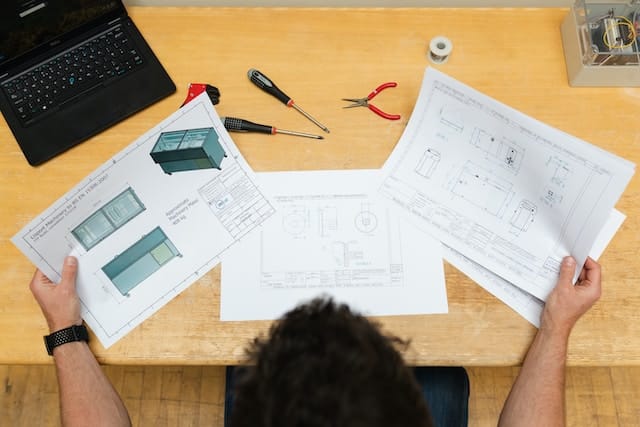Embarking on a new career path is thrilling, especially when it involves shaping the world around us. But if you’re wondering how to start your career as a civil engineer, it might feel like staring at a blueprint without a clear understanding of how to get from the initial concept to a fully realized structure. Fear not because we did thorough research with the help of a friendly team from a reputable civil engineering blog. This comprehensive guide will navigate you through this promising and prosperous career, laying a solid foundation for your future success.
The Pathway to Prosperity: Civil Engineering
You might be wondering what does a civil engineer do. Civil engineering is a broad discipline involving designing, constructing, and maintaining the physical and naturally built environment, including roads, bridges, canals, dams, and buildings. Pursuing a career in civil engineering paves the way for a prosperous future characterized by innovation, societal impact, and personal growth.

Here are some benefits of diving into this exciting field:
- A Tangible Impact on Society: Civil engineers hold the reins of the world’s infrastructure. Your work directly contributes to societal growth, from designing efficient transport systems to developing sustainable buildings.
- Creative Problem Solving: No two projects are the same. That offers civil engineers a constant stream of unique challenges. This creative problem-solving aspect keeps the profession exciting, fulfilling, and far from mundane.
- Highly Competitive Salary: With expertise in high demand, civil engineers can expect to earn a lucrative income. However, your financial reward is a direct reflection of your significant responsibilities.
- Job Security and Growth Opportunities: As long as society continues to grow and develop, the need for competent civil engineers will persist. Furthermore, the field offers various avenues for specialization. Therefore, there’s always room for career progression.
- Interdisciplinary Exposure: Civil engineering intersects with various disciplines. These include architecture, environmental science, and urban planning. This crossover stimulates continuous learning and broadens your perspective.
Embracing a career in civil engineering can be one of the most rewarding decisions of your life. The opportunity to shape our world, coupled with personal and professional growth, makes this career path truly captivating.
#1 Constructing the Cornerstone: Acquiring Essential Education and Skills
The journey towards a successful career in civil engineering begins with the right education and skills, the cornerstone of your foundation in this field. While a bachelor’s degree in civil engineering or a related field is generally the bare minimum, it’s the springboard from which you can launch into many exciting opportunities. The curriculum typically includes mathematics, statistics, engineering mechanics and systems, and computer-aided design.
Beyond the realm of academics, it’s crucial to hone a collection of technical and soft skills that are highly valued in this industry. Proficiency in using advanced design software, conducting analytical computations, and understanding materials and construction techniques are fundamental. On the soft skills front, managing projects effectively, solving complex problems, and working seamlessly as part of a team is paramount. Remember, the most successful civil engineers consistently upgrade their skills to stay relevant in a continually evolving field.
#2 Laying the Building Blocks: Harnessing Experience Through Internships and Entry-Level Jobs
The answer to your question of how to start your career as a civil engineer doesn’t stop at the lecture hall’s doors. In reality, real-world experience is a vital piece of the puzzle. Internships and entry-level jobs offer a fantastic opportunity to apply theoretical knowledge in practical scenarios. This way, you’ll reveal how the principles and concepts learned in the classroom come to life in actual engineering projects.

To illustrate the importance of hands-on experience, let’s take an example from a slightly different field. The Kokusai Express Moving Japan expert team, known for their commercial moving proficiency, often cites practical experience’s value. Though not directly related to civil engineering, their ability to coordinate complex operations and logistics – crucial elements in their work – underscores the universal importance of practical expertise. In much the same way, as an aspiring civil engineer, you’ll need to understand the intricacies of planning and executing engineering projects.
#3 Start Your Career as a Civil Engineer by Securing Your Credentials
Professional licensing becomes a critical step as you start to make your mark in the field. Practicing civil engineers must possess a Professional Engineer (PE) license in most states and regions. This title, earned after passing rigorous exams, signals to employers and clients alike your competency and dedication to the profession.
However, the quest for professional development doesn’t stop with licensure. Several certifications cater to different civil engineering specialties. Those include geotechnical, structural, environmental, and transportation engineering. So if you’re still waging between architecture vs. civil engineering, these can help you decide. Securing these additional certifications can catapult your career to new heights, showcasing your expertise in your chosen specialization. That will make you an invaluable asset in the industry.
#4 Crafting Connections: Networking and Ongoing Professional Development
The dynamic nature of the civil engineering field calls for continuous learning and professional development. Regular participation in industry conferences, seminars, and workshops lets you stay updated with the latest trends, technological advances, and best practices. Joining local and international professional associations can provide a wealth of resources and opportunities for mentorship, collaboration, and networking.

Remember, a well-connected civil engineer is always a step ahead. Building strong professional relationships can lead to exciting job prospects, collaborative opportunities, and access to an extensive knowledge pool. And, in a field that’s always evolving, staying connected means staying relevant. Embrace the continuous learning journey, and you’ll find your place among the industry’s leading professionals.
Your Blueprint to Success
Understanding how to start your career as a civil engineer involves more than just earning a degree. It’s about laying a solid educational foundation, gaining hands-on experience, securing professional licensing, and engaging in continuous learning and networking. With dedication, resilience, and a passion for creating sustainable and innovative infrastructure, you’re well on your way to a successful and rewarding career in civil engineering. Remember, the world awaits your ingenuity. Start building your future today!
Photos used:
https://unsplash.com/photos/seven-construction-workers-standing-on-white-field-x-ghf9LjrVg
https://unsplash.com/photos/M_NvKwSOkug
https://unsplash.com/photos/xYCBw1uIP_M
https://unsplash.com/photos/wMRIcT86SWU

